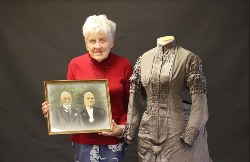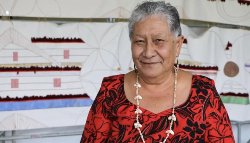GLBT Mental Health Needs Greater Recognition
1 June 2011
GLBT Mental Health Needs Greater Recognition
There needs to be greater recognition and awareness of mental health issues faced by gay, lesbian, bisexual and transgender populations, says the Mental Health Foundation.
In a video released today by the Foundation, produced for the Like Minds, Like Mine programme, OutlineNZ general manager Vaughan Meneses says that calls to its national counselling service are up eighty percent year on year.
“What Outline have identified is that there are times of crisis for gay, lesbian and transgender people across the life cycle, not just at the youth and coming out stages,” says Judi Clements, Chief Executive of the Mental Health Foundation. “Gay, lesbian and transgender people reaching middle age and retirement age are also at risk, often because of a lack of extended family support as they get older.”
Says Vaughan Meneses in the video: “We’re doing a lot more counselling, and a lot of it is around those life-issues that people face around isolation, around depression, around coming out, around relationships.
“Mental illness is often invisible, and so is being gay; it’s not until you get to certain points of confidence that you can actually start sharing that you have a mental illness, that you might be gay or lesbian, or both.”
Researchers have noted an elevated risk of suicide and mental illness among GLBT populations for more than four decades now, but little in the way of targeted interventions have been developed for these communities.
A recent review of suicide and suicide risk in lesbian, gay, bisexual, and transgender populations published in the Journal of Homosexuality provided recommendations for action in a number of areas, including mental health, suicide prevention and public policy.
Public policy recommendations included advocating for “anti-bullying and safe schools legislation, and for the specific inclusion of sexual orientation and gender identity in protective legislation related to school safety.”
“The Mental Health Foundation was a key supporter of the Pink Shirt Day letter-writing campaign to Prime Minister John Key, fronted by gay Olympian Blake Skjellerup,” says Judi Clements. “This campaign resulted in thousands of letters from students urging the Prime Minister to take action on homophobic and other forms of bullying, and gained Blake and queer youth group leaders a personal audience with Mr Key to air their concerns.
“We are now proud to be one of a number of organisations supporting a nationwide school tour and series of assembly talks by Blake, where he will share his personal story of bullying, coming out and flourishing in his sporting career.”
Other recommendations in the review included campaigns targeting LGBT populations to destigmatise mental illness and provide educational and resource materials on suicide risk.
“We are currently producing a video series and accompanying booklet on gay men, depression and suicide risk to be released later this year,” says Judi Clements. “Through the telling of personal stories, it will address a number of risk factors as uniquely experienced by gay men, including body image, HIV, male identity and sport, cultural identity, spirituality and aging.”
In addressing the family members of gay, lesbian and transgender people, the Foundation supports the words of Outline’s Vaughan Meneses in its video:
“Be there, and be involved. Ask about their partners, ask about their lives; find out what’s going on in their lives in the same way that you would have with any other friend or family member in terms of conversations,” Meneses says.
“That is probably the single biggest thing that we can do in terms of our engagement with family and friends who are lesbian, gay, transgender, or with mental health issues – engage them and validate that their experience is really important; and their lives are no less significant because of the new information that we’ve learned about them.”
ENDS


 Braden Currie: Sets Sights On The Ironman North American Championships In Texas
Braden Currie: Sets Sights On The Ironman North American Championships In Texas Whanganui Regional Museum: Historic Wedding Dress Unveiled, A Piece Of Marton’s Heritage
Whanganui Regional Museum: Historic Wedding Dress Unveiled, A Piece Of Marton’s Heritage Donovan Ryan: Local Runner Takes Out Frontrunner Christchurch Marathon
Donovan Ryan: Local Runner Takes Out Frontrunner Christchurch Marathon University of Auckland: Tributes Flow For Much Loved Pacific Leader Melegalenu’u Ah Sam
University of Auckland: Tributes Flow For Much Loved Pacific Leader Melegalenu’u Ah Sam NZEI: Ministry Of Education Cuts Will Disproportionately Affect Pasifika
NZEI: Ministry Of Education Cuts Will Disproportionately Affect Pasifika Day One Hapai te Haeata: Call To Action For Young Filmmakers Against The Backdrop Of Funding Cuts
Day One Hapai te Haeata: Call To Action For Young Filmmakers Against The Backdrop Of Funding Cuts